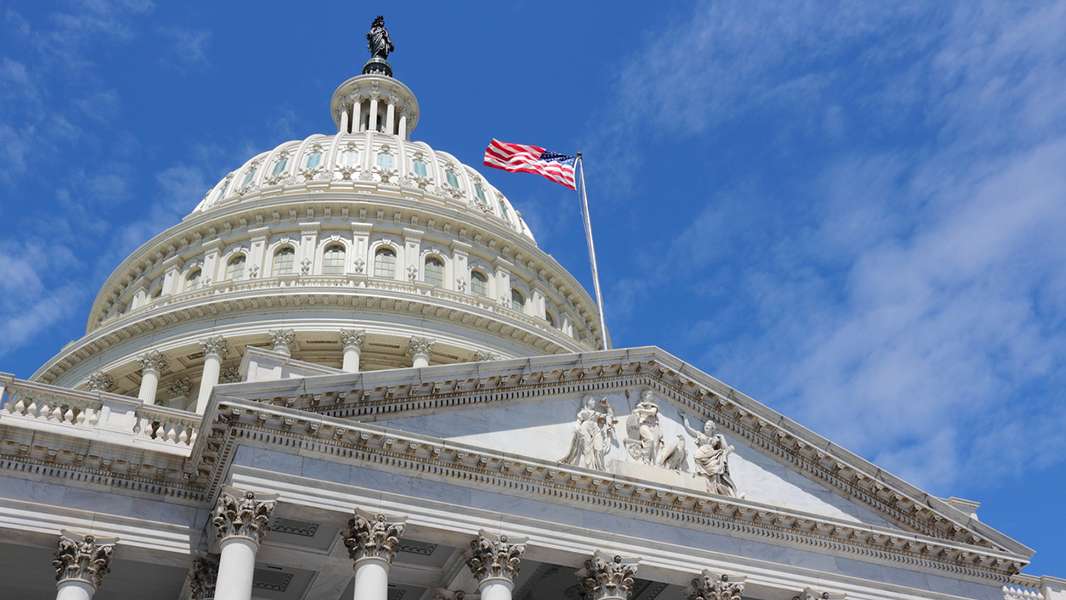As the US prepares for a ‘hard-fought presidential election year with control of the White House, Congress and key state-level offices at stake’, companies are largely maintaining or improving transparency around political spending, according to new research.
It shows firms ‘holding steadfast to transparency and accountability principles for election-related spending’, even in the face of ‘fierce attacks’ on ESG. Despite ESG backlash in the US, these principles are reportedly being adopted by companies as part of wider ESG metrics.
A record number of companies have achieved ‘trendsetter’ status for their transparency around political spending in the 2023 CPA-Zicklin Index of Corporate Political Disclosure and Accountability.
One hundred S&P 500 firms have received the designation of trendsetter – assigned to a firm scoring 89 percent or higher across multiple factors, including board oversight of political spending
These 100 companies represent the highest number of top-scoring companies in the index, co-authored by the Center for Political Accountability (CPA) and the Zicklin Center for Governance and Business Ethics at the Wharton School, since it was expanded beyond the S&P 100 in 2015. That year, 28 companies had trendsetter status.
‘The political climate is toxic and hyper-partisan, and the next elections are expected to set records for political spending,’ says Bruce Freed, CPA president, in a statement. ‘Companies face more risk from their political spending, yet more corporations than ever are doing a great job of applying guardrails.
‘What’s more, despite a blistering crusade against ESG principles, companies that have voluntarily made sunlight and accountability for political spending a norm are not wavering.’

Further expansion
For all S&P 500 companies, the average overall score for political disclosure and accountability is 58.3 percent (compared with 57 percent last year) and across the S&P 500, scores are largely up on 2022 figures across a range of factors.
The number of S&P 500 companies that fully or partially disclosed their political spending in 2023 or that prohibited at least one type of spending hit a high of 387, up from 385 last year, for example. There are also now 314 S&P 500 companies with general board oversight of company political spending, up from 307 companies a year ago.
That said, the CPA-Zicklin index was expanded last year to include Russell 1000 companies, with a far lower average score of 13.8 percent. ‘With a greater effort ahead from shareholders seeking transparency and accountability from Russell 1000 companies, it is hoped they will revise their practices and policies and improve their lagging standings,’ say researchers.
Investor engagement
The latest political spending report also looks at the impact of shareholder engagement around these issues.
Researchers point to 234 S&P 500 companies that faced a shareholder resolution on the issue of corporate political spending disclosure and accountability since the 2004 proxy season. Of these companies, 158 reached agreements with shareholders. For companies with an agreement, the average overall index score is 78.6 percent, compared with 67.5 percent for the 76 companies that were engaged but did not reach an agreement. The average score for the 262 companies that have no history of shareholder engagement is 43.3 percent.
‘Corporate political disclosure over the course of more than a decade reveals a remarkable evolution in the thinking of company leadership about corporate political accountability,’ says William Laufer, co-director of the Carol and Lawrence Zicklin Center for Governance and Business Ethics. ‘Full and fair disclosure is, as CPA claims, a matter of corporate accountability, risk management and integrity.’










